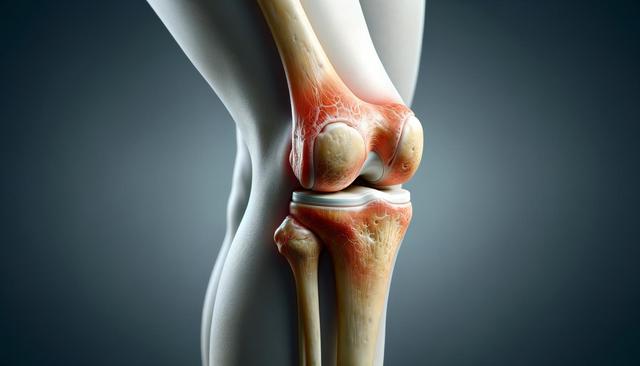What Is Psoriatic Knee Arthritis?
Psoriatic arthritis is a type of inflammatory arthritis that affects some individuals with psoriasis, a skin condition marked by red, scaly patches. When this form of arthritis targets the knee joint, it can result in swelling, stiffness, and persistent pain. Psoriatic knee arthritis is characterized by the immune system attacking healthy joint tissue, causing inflammation and joint damage over time. Unlike osteoarthritis, which is caused by wear and tear, psoriatic arthritis is autoimmune in nature. Symptoms can vary in intensity and might flare up or subside periodically.
Common signs include:
- Joint pain and tenderness in the knee
- Morning stiffness lasting longer than 30 minutes
- Warmth and redness around the joint
- Reduced range of motion
- Fatigue and general malaise
Understanding the underlying cause is essential when exploring options for the Best Medication for Arthritis in Knees. Treatment often focuses on reducing inflammation, controlling immune system activity, and managing symptoms to maintain joint function.
Causes and Risk Factors
The exact cause of psoriatic knee arthritis remains unclear, but genetics and immune system responses play a major role. Individuals with a family history of psoriasis or psoriatic arthritis are at greater risk. Environmental factors such as infections or trauma to the knee joint can also trigger the onset of symptoms in those predisposed to the condition.
Key risk factors include:
- Having psoriasis, particularly if nail changes are present
- A family history of psoriatic arthritis
- Age—most commonly appears between ages 30 and 50
- Obesity, which increases pressure on knee joints
- Smoking, which can worsen inflammation
Recognizing these risk factors can help individuals seek early intervention and explore options like the Best Pain Relief for Arthritis in Knees before significant joint damage occurs.
Treatment Options and Medications
Treatment for psoriatic knee arthritis typically involves a combination of medications, physical therapy, and lifestyle adjustments. The goal is to manage inflammation, relieve pain, and preserve joint mobility. When determining the Best Medication for Arthritis in Knees, doctors often consider disease-modifying antirheumatic drugs (DMARDs), nonsteroidal anti-inflammatory drugs (NSAIDs), and biologics.
Common treatment options include:
- NSAIDs to reduce pain and inflammation
- DMARDs to slow disease progression
- Biologic agents targeting specific immune pathways
- Corticosteroid injections for localized relief
Each treatment plan is tailored to the individual’s symptoms and response to medication. While some patients experience relief quickly, others may need to try different medications over time. Combining therapies can often lead to better outcomes and help patients move closer to understanding How to Get Rid of Knee Pain Permanently.
Home Remedies and Lifestyle Adjustments
In addition to medical treatments, several home-based strategies can support knee joint health and reduce discomfort. Exploring Arthritis Knee Pain Treatment at Home offers non-invasive, low-risk options that may complement medical therapy. These approaches aim to reduce inflammation, improve joint flexibility, and enhance muscle support around the knees.
Effective home remedies include:
- Using warm or cold compresses to manage swelling and pain
- Gentle stretching and strengthening exercises
- Maintaining a healthy weight to reduce joint stress
- Applying topical anti-inflammatory creams
- Practicing stress reduction techniques like yoga or meditation
Many individuals also seek natural or holistic approaches, such as dietary changes, to support joint health. Foods rich in omega-3 fatty acids, antioxidants, and vitamin D can have anti-inflammatory effects. When combined with other treatments, these methods may serve as the Best Remedy for Knee Pain for some individuals.
Long-Term Management and Outlook
Psoriatic knee arthritis is a lifelong condition that requires ongoing management. With appropriate treatment and lifestyle modifications, many people can maintain a good quality of life. Regular check-ups with a rheumatologist are essential for monitoring disease progression and adjusting treatment as needed. Early and consistent intervention is key to minimizing joint damage and maintaining mobility.
Long-term strategies include:
- Sticking to prescribed medication regimens
- Monitoring for side effects and effectiveness
- Staying physically active within comfortable limits
- Using assistive devices during flare-ups
- Engaging in regular physical therapy when recommended
Managing expectations and staying informed about new treatment advancements can help patients feel empowered. While not everyone may find a definitive answer on How to Get Rid of Knee Pain Permanently, many can achieve meaningful relief and prevent further joint deterioration with a comprehensive care plan.
Conclusion
For individuals dealing with psoriatic knee arthritis, understanding the condition and taking a proactive approach to treatment can make a significant difference. Whether seeking the Best Pain Relief for Arthritis in Knees or exploring effective Arthritis Knee Pain Treatment at Home, combining medical care with lifestyle adjustments often yields the most sustainable results. Staying informed, working closely with healthcare providers, and committing to a long-term management plan will help maintain joint health and improve daily life.



Leave a Reply